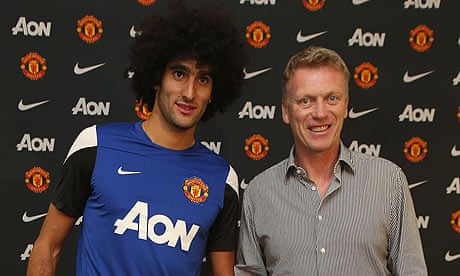According to the Premier League's official website, of the 115 permanent transfers (not counting free transfers) involving Premier League clubs this summer, only five were disclosed with any official figure, meaning that football fans spent their summers reading an increasingly unwelcome, yet familiar phrase: "... for an undisclosed fee."
The term is a perennial transfer window anticlimax: a well-trodden exercise in public relations, serving only to protect the agents, chairmen and directors of football. Put simply, an undisclosed transfer is designed to save face. Whether buying or selling, clubs need to be seen to be getting the best value for money and if there is even the smallest inkling that the sale or purchase price of a player for either of the two clubs might incur the wrath of either set of supporters, an undisclosed fire blanket is thrown over the top of the deal. Only when a club is happy with the fee will an official figure be announced, which amounted to 110, or 4.35%, of the permanent transfers this summer.
Never more apparent was this face-saving than in the sale of Marouane Fellaini from Everton to Manchester United on transfer deadline day. Having passed up the opportunity to sign Fellaini for his £23.5m buyout clause, United were forced to fork out £27.5m to persuade Everton to sell just a month later, making a mockery of the £28m joint bid for Fellaini and Leighton Baines, only two weeks ago. How does United's executive vice-chairman Ed Woodward sweep this one under the carpet? "An undisclosed fee", read the club's official statement. Except Everton, needing to explain the sale of a star player to their fans and presumably delighted about the extra £4m, could not resist letting the fee slip, leaving United red-faced.
Normally, when a deal isn't conducted with seconds to spare before the window shuts, the process is a lot more straightforward: clubs' press releases are painfully watertight, and the press "understand it to be in the region of", through "sources" that are well-placed. But without an official statement, fans can feel confused (figures for a deal can wildly differ: Santi Cazorla was quoted as moving to Arsenal for anything between £12m and £16.5m last year). The fundamental problem is that there seems to be a difference between doing something and owning up to doing that very same thing.
The fun of the transfer window remains in the foreplay of speculation rather than the main event. But there is a certain joy about knowing how much a player costs; in working out how many Michu's you can buy for a Neymar (25.5 apparently), or how much dearer the Manchester City squad was that lost to Wigan in May's FA Cup final. The success of Championship Manager, Football Manager and various fantasy football leagues is largely down to how well one can wheel and deal, tinkering with clearly priced players to build a winning team.
Why is there a lack of transparency? After all, a Premier League club's finances are laid bare every year, while gate and matchday income, merchandise and TV income, and commercial sponsorship are all widely available to anybody who cares to look. A breakdown of individual transfer fees remains largely hidden.
However, there must be a line drawn between disclosing transfer fees and disclosing wages. Wages are between a club and an individual and publicising that would divide a dressing room. No matter how astronomical, they should be under no more pressure to disclose their salary than you or I.
It may never have been more business-like, but football is a sport played, watched, and – with the advent of financial fair play, supposedly decreasing the influence of billionaire owners – paid for by the fans, whether it's done through Sky-shaped mediums, ticket-price hikes, or other means.
It is becoming a numbers game, increasingly crunched by Opta on the pitch, and by boardrooms off it. Fans have a lot invested in these players, be it emotionally or numerically – do they not deserve to know the figures their clubs are buying or selling these players for, or know if their chief executive is having their pants pulled down in the transfer market?
Privately-owned clubs will argue that they are under no obligation to share the ins and outs of the transfer window's ins and outs. But obligation is a subjective term – should a club serve its fans because it wants to or because it has to? For clubs wholly or partly owned by their fans, such as Barcelona and Real Madrid, or indeed nearly all German or Turkish clubs, fans should have access to their club's transfer fees, but are mostly denied this. Swansea City, who are 20% owned by their supporters, provided two of the five official figures mentioned at the top of this article – Wilfried Bony for £12m and Jordi Amat for £2.5m – but still withheld four undisclosed fees this summer. Is this enough?
Alas, with deals increasingly complicated with extra clauses and incentives, and agents becoming more influential, undisclosed fees look set to continue. But football clubs should be responsible for the transfers they voluntarily undertake, good and bad. Tottenham's Daniel Levy should be largely praised (if Tottenham's reported incomings and outgoings are to be believed), and Manchester United's Woodward criticised, for their respective dealings this summer. For fans who continue to stump up the cash as we ostensibly enter the era of financial fair play, accountability and transparency is key.

Comments (…)
Sign in or create your Guardian account to join the discussion